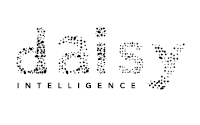
AI and Change Management - How to help a company embrace AI
 Daisy Intelligence
Daisy Intelligence
According to The Association of Change Management Professionals (ACMP), change management is defined as (1) the “practice of applying a structured approach to transition an organization from a current state to a future state to achieve expected benefits.”
From our perspective, this means our clients (retailers, mainly in the grocery category) will take certain necessary measures to ensure their investments in AI are integrated and adopted in the best manner possible.
AI is so impactful and important that once an organization embraces it, nothing less than wholesale changes are imminent with regards to how employees view the industry, the company, and long-term career paths as well their day-to-day job roles.
In many cases the actual act of creating artificial intelligence programs to solve retailer’s problems isn’t actually that difficult. The major challenges derive from the fact that retailers, for decades, have had a certain view of their world. Along comes AI with a different and more holistic view that seriously challenges “known conventions.”
The goal is to get the key people on board with adopting AI and keep them tee’d up and eager to embrace AI for the tangible benefits to organizations and their careers..
Be prepared for change -- at all levels
First and foremost is preparation. Since many (if not the majority) of tech investments are actually quite heavily based on the decision-makers’ previous experiences and personal memories, and AI is an entirely new category of solution for many, the senior executive leadership and directors must not only make sure they have an understanding of how AI solutions helps users – at all levels of the company – they must ensure that an early, active and robust internal communications effort is in place. The goal of this effort is simple: conveying the benefits that come with using AI throughout the organization. This sort of internal PR campaign has to be in place and ready-to-go before AI is in the building, so to speak.
The importance of this form preparation really can’t be understated. According to a regional grocer who successfully implemented AI to optimize their promotion planning, “senior executives through middle managers all the way down to frontline employees were all involved from the beginning, and we made sure that all the reasons for adopting AI were clearly understood throughout the organization.”
AI is powerful...but it doesn’t work without people
“Despite its name, there is nothing ‘artificial’ about this technology,” according to Fei-Fei Li, a professor of computer science at Stanford in an opinion piece in the New York Times (2) earlier this year. “It is made by humans, intended to behave like humans and affects humans.” We couldn’t agree more with this sentiment. And, we’d add, AI simply doesn’t work without humans. There are a lot of what we may call “soft” components to retailer profitability - employee culture, diversity/intercultural understanding, brand mystique, corporate reputation, to mention a few. The fact is, the people who are out there on the sales floor with the customers every day are going to gather insights and develop opinions, and we’ve proven that the best possible results occur when one combines the information from the AI-based technology and analytics with those people’s insights and opinions. No matter how powerful AI is (and will become) one thing is definite: when basing decisions on either human insights and opinions without AI -- or AI without human insights and opinions -- both approaches will produce extremely sub-optimal results.
In the retail world and beyond, there will absolutely never not be a strong need for human experience, human judgment, and human wisdom when it comes to evaluating products, optimizing pricing, and executing promotions, among other tasks. We know that if the senior leadership tries to brush past or ignore these concepts, employees at all levels throughout the organization will misinterpret and mistrust what the intentions are behind the AI and the on-boarding process will most likely not succeed, and ultimately, the investment in AI will not payoff.
Don’t venture in -- if you’re not committed.
AI represents both an existential threat to retailers (Amazon, for one, is betting the company on AI) as well as incredible opportunity. For many retailers, “adding AI” as a reactive response to the threat can, in some cases, preclude the difficult task of developing a long-term AI strategy to take advantage of the opportunity, which requires a strong and vocal commitment from the senior executive leadership. According to a 2008 McKinsey survey of 3,199 executives around the world, only one out of every three change management transformation efforts are successful. One of the main reasons is lack of full commitment…. on the part of the senior executive leadership.
Before he passed away recently, the famed physicist Stephen Hawking said that recent advances in AI were "the biggest event in human history." As we predicted, 2017 was the tipping point for AI in retail, and 2018 is a year of momentum, as retailers across the spectrum of the retail industry others are learning how to use AI to grow profit margins.




